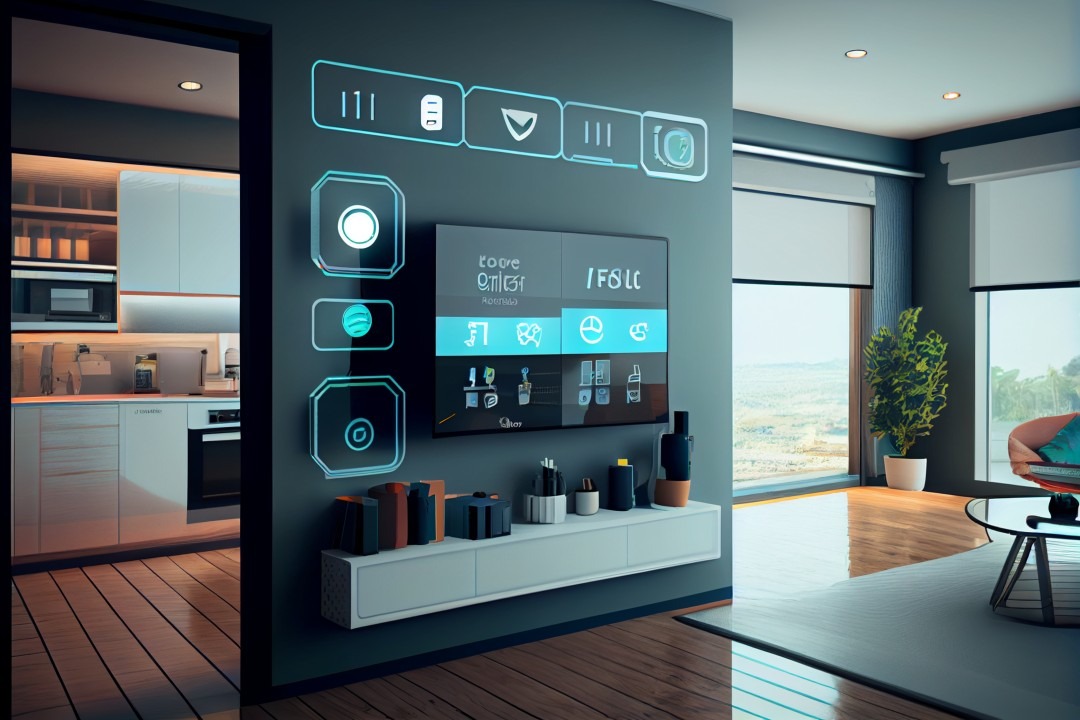Smart home automation has rapidly transformed the way we interact with our living spaces, offering convenience, comfort, and efficiency like never before. With the proliferation of connected devices and advancements in technology, homeowners can now control various aspects of their homes with a simple voice command or a tap on their smartphone. In this article, we’ll explore the myriad benefits of smart home automation and how it is revolutionizing modern living.
Streamlining Daily Tasks
Automated Lighting and Climate Control
One of the key benefits of smart home automation is the ability to automate routine tasks such as lighting and climate control. Smart lighting systems allow users to schedule lights to turn on or off at specific times or in response to certain triggers, enhancing security and energy efficiency. Similarly, smart thermostats enable precise control over heating and cooling systems, optimizing comfort while reducing energy consumption and utility costs.
Voice-Activated Assistance
The integration of voice-activated virtual assistants like Amazon Alexa and Google Assistant has further streamlined daily tasks in smart homes. Users can simply issue voice commands to control various devices, from adjusting the thermostat to playing music or setting reminders. This hands-free convenience enhances accessibility for users of all ages and abilities, making smart home automation truly inclusive.
Enhancing Home Security
Remote Monitoring and Surveillance
Smart home automation offers advanced security features that provide homeowners with peace of mind, even when they’re away from home. Wi-Fi-enabled security cameras allow for remote monitoring of the property, providing real-time alerts and footage in the event of suspicious activity. Coupled with smart doorbell cameras and motion sensors, these systems offer comprehensive security coverage, deterring potential intruders and providing valuable evidence in case of incidents.
Smart Locks and Access Control
Gone are the days of fumbling for keys or worrying about lost or stolen copies. Smart locks offer keyless entry via smartphone apps or PIN codes, allowing homeowners to grant temporary access to guests or service providers remotely. Furthermore, smart locks can be integrated with other security systems, automatically locking doors when the alarm is activated or sending alerts if unauthorized access is detected, enhancing overall home security.
Promoting Energy Efficiency
Intelligent Energy Management
Smart home automation plays a pivotal role in promoting energy efficiency and sustainability. By monitoring energy usage in real-time and analyzing patterns, smart energy management systems can identify opportunities for optimization and recommend adjustments to minimize waste. From smart plugs that control energy consumption of appliances to smart meters that provide detailed insights into electricity usage, homeowners can make informed decisions to reduce their environmental footprint and lower utility bills.
Integration with Renewable Energy Sources
The integration of smart home automation with renewable energy sources such as solar panels further enhances energy efficiency and sustainability. Smart inverters and energy storage systems optimize the utilization of solar energy, storing excess power for use during peak demand periods or when sunlight is unavailable. Additionally, smart home automation allows for seamless integration with electric vehicle charging stations, enabling homeowners to maximize the benefits of clean energy and reduce reliance on fossil fuels.
Conclusion
Smart home automation has revolutionized modern living, offering unparalleled convenience, security, and energy efficiency. By leveraging connected devices and advanced technology, homeowners can streamline daily tasks, enhance home security, and promote sustainability. As smart home technology continues to evolve, the possibilities for transforming living spaces are limitless, promising a future where homes are not just smart but truly intelligent and responsive to the needs of their occupants.
